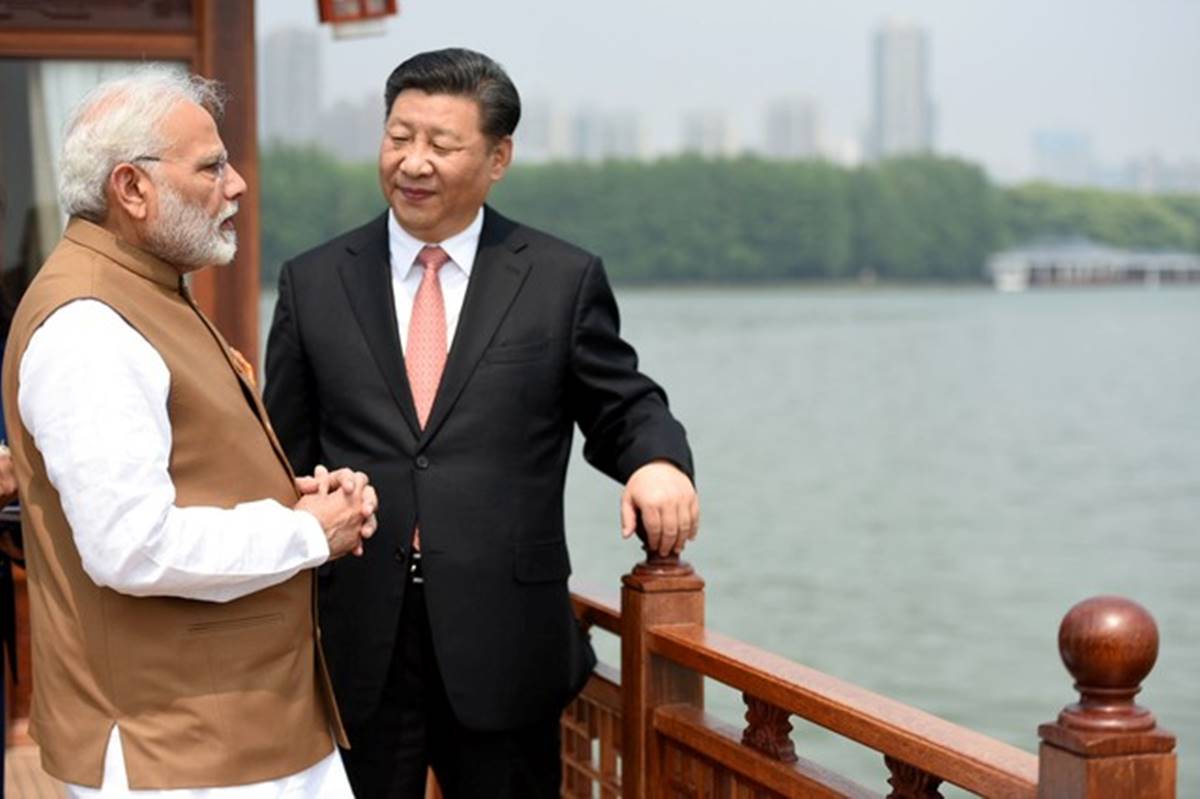China and India insist on peace but issue warnings after violent clash at border

A few minutes every morning is all you need.
Stay up to date on the world's Headlines and Human Stories. It's fun, it's factual, it's fluff-free.
In the aftermath of a historical confrontation along the Chinese-Indian border, Chinese President Xi Jinping and Indian Prime Minister Narendra Modi, appear to be caught between nationalist sentiments and a desire for peace.
On Wednesday, Modi said in a televised address that India did not want to fight but was ready to do so if necessary.
“I would like to assure the country that the sacrifice of our soldiers will not be in vain,” he said. “The sovereignty and integrity of India is supreme, and nobody can stop us in defending that. India wants peace,” he continued, “but if provoked India is capable of giving a befitting reply.”
A brawl between Indian and Chinese troops broke out on Tuesday morning in the Galwan Region along the China-India border in the Himalayas, often referred to as the Line of Actual Control (LAC), which resulted in at least 20 deaths and more casualties.
According to a senior Indian government official, the clash ensued after Indian Colonel Santosh Babu dismantled and set fire to a Chinese tent. “The Chinese had not removed the tent despite it being agreed to in the military-level talks,” the official told Indian news outlet The Hindu on Wednesday.
This started a fight which lasted about an hour until Chinese reinforcements arrived with “iron clubs hidden behind their backs.”
“The jawans fought with bare hands and took on the Chinese, no gun shot was fired,” he added in reference to the agreed code of conduct at the border which prohibits either side from the use of firearms.
Since the incident, both Chinese and Indian officials have traded blame over which side provoked the conflict.
On Wednesday, Chinese Foreign Minister Wang Yi spoke on the phone with Indian Minister of External Affairs Subrahmanyam Jaishankar, where he accused Indian troops of having crossed the border and breaching earlier agreements for de-escalation.
He also said that Indian soldiers had been provocative and attacked Chinese troops who were in the area only to liaise.
“India must not misjudge the current situation and must not underestimate China’s firm will to safeguard territorial sovereignty,” he stated.
However, Wang’s statements severely contradict those released by the Indian side.
“The Chinese side took premeditated and planned action that was directly responsible for the resulting violence and casualties,” said Jaishankar in his phone conversation with Wang, according to a statement released by the Indian Ministry of External Affairs.
Jaishankar expressed India’s opposition against the conflict “in the strongest terms,” saying that the incident could have a “serious impact” on the nations’ relationship.
Other spokespeople from the Indian side maintained that their troops had remained “within the Indian side of the LAC.”
Indian military officers also reported that Indian soldiers went to liaise with Chinese troops about disengagement but were attacked by soldiers armed with clubs, stones and iron rods.
However, Wang and Jaishankar still conveyed intent to resolve their tensions through dialogue, agreeing to handle the situation in a “responsible manner” and not escalate tensions any further.
China and India have been disputing this border over the last 45 years, but recent escalations mark the deadliest conflict in decades with representatives from both sides failing to agree on who caused it.
However, neither Beijing or New Delhi is in a position to encourage further tensions with many believing that the pandemic has left both countries too weak to consider war at this moment.
At a private webinar on Wednesday in Hong Kong, DBS Bank’s Executive Director and Chief China Economist Chris Leung stated that he did not believe a war between the two nuclear-powered nations was likely.
Citing concerns about the mountainous Himalayan landscape at the border, he said that even though China and India have disputed the border for “many, many years,” they have never went to war because “the cost of war at 8,000 meters (26246.72 feet) high is just impossible.”
“It will likely become a nonevent very soon,” he added.
Indian analysts also expressed doubts over the likeliness of war.
“Whatever India might want to do it’s not in a position to do,” said Bharat Karnad, a professor of security studies at the Center for Policy Research at New Delhi, citing India’s economic and health crisis caused by the coronavirus.
“The Modi government is in a difficult position,” he said. “This is bound to escalate … [but] we are not prepared for this kind of escalation.”
Despite this, Indian citizens have reacted strongly to news of the conflict.
“Why is [Modi] hiding?” tweeted Rahul Gandhi, one of India’s most prominent opposition leaders. “Enough is enough. We need to know what has happened. How dare China kill our soldiers? How dare they take our land?”
The Times of India also wrote in a recent editorial that the “gloves are off.”
“With the Galwan valley clash, China pushed too hard. India must push back.”
They also advocated for sanctions against Chinese imports, saying “Beijing can’t kill our soldiers at the border and expect to benefit from our huge market.”
In contrast, Chinese state media has remained tight-lipped about the incident, only releasing several sparse reports.
Chinese Foreign Ministry representative Zhao Lijian was asked on Wednesday about Indian media reports that China had suffered 43 casualties in the conflict. In response, he stated that he had no information to offer and sidestepped related questions on four separate occasions.
The editor-in-chief of state owned newspaper The Global Times Hu Xijin, took to Twitter to seemingly taunt India, saying that 17 soldiers died because of the “seriously flawed” Indian army. He also responded to angry reactions from the Indian public saying that they “[need] to stay sober.”
Have a tip or story? Get in touch with our reporters at tips@themilsource.com




Comments ()